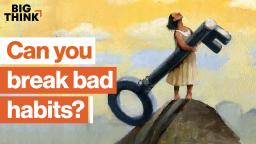mind
Labeling thinkers like Albert Einstein and Steve Jobs as “other” may be stifling humanity’s creative potential.
▸
14 min
—
with
The present-moment awareness that stems from mindfulness practices may be the cost-effective tool that our society needs.
As patients approached death, many had dreams and visions of deceased loved ones.
Being skeptical isn’t just about being contrarian. It’s about asking the right questions of ourselves and others to gain understanding.
▸
15 min
—
with
For democracy to prosper in the long term, we need more people to reach higher levels of education.
Surprising as it may seem, we are all very good at denial. Negation, however, is a different phenomena.
From baboon hierarchies to the mind-gut connection, the path to defeating depression starts with understanding its causes.
▸
23 min
—
with
Did America’s collective mental health get worse (and then better) after the first COVID-19 lockdown?
What can ‘behaviorism’ teach us about ourselves?
Clinical trials at the Feinstein Institutes for Medical Research focus on stabilizing cognitive loss and alleviating the psychotic symptoms that change our loved ones.
How much of this can be linked to genetics?
Let noted cognitive psychologist and linguist Steven Pinker introduce you to psychology.
When someone is lying to you personally, you may be able to see what they’re doing.
A popular and longstanding wave of thought in psychology and psychotherapy is that diagnosis is not relevant for practitioners in those fields.
The Persian polymath and philosopher of the Islamic Golden Age teaches us about self-awareness.
Imagine Heraclitus spending an afternoon down by the river…
Nihilism is not a choice or intellectual commitment, but a feeling that simply arrives.
No, being interested in BDSM does not mean you had a traumatic childhood.
What lies in store for humanity? Theoretical physicist Michio Kaku explains how different life will be for your descendants—and maybe your future self, if the timing works out.
▸
15 min
—
with
Habits are easier to hack and change when you understand how they work.
▸
12 min
—
with
Take a journey through the maze of interpretations of one of the most famous paintings in history.
First, recognize that our genes make us worrywarts.
An excessive focus on past failures can make learning about new situtations more difficult.
New research shows that experiencing an opposite-sex body in virtual reality impacted the subject’s gender identity.
There’s no such thing as a miracle drug.
After the unrelenting negativity of 2020, we may need a refresher on the benefits of a positive affect.
A large study shows changes in the brain scans of lonely people in the area involved in imagination, memory, and daydreaming.
Fractal patterns are noticed by people of all ages, even small children, and have significant calming effects.
Is the quest to upload human consciousness and ditch our meat puppets the future—or is it fool’s gold?
▸
14 min
—
with





























